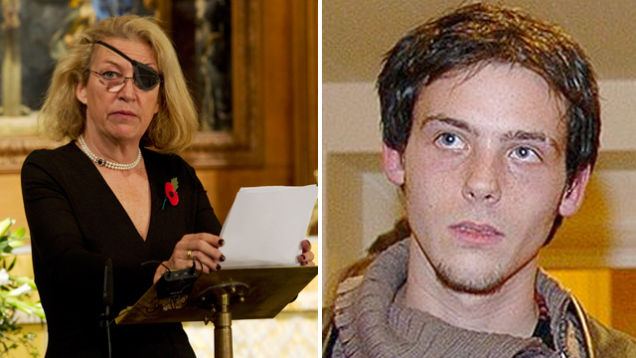Journalist Marie Colvin and French photojournalist Rémi Ochlik, killed in a targeted Assad regime attack on a media center in Homs, Syria, February 2012
Syria’s Assad regime has been ordered to pay $300 million over its army’s killing of journalist Marie Colvin in February 2012.
A US court found that the regime deliberately targeted journalists to “intimidate newsgathering” and suppress dissent.
Colvin, a US citizen who worked for the Sunday Times of London and French photojournalist Rémi Ochlik were killed in a rocket attack on a media center in a high-rise building in an opposition-held area of Homs.
In one of its first significant uses of airpower, the Assad regime devastated parts of Homs such as the Baba Amr neighborhood in weeks of bombing.
In 2016, Bashar al-Assad said in a TV interview that Colvin was responsible for her own death because she entered the country illegally and was working with “terrorists”.
Hundreds of overseas and local journalists have been among the hundreds of thousands of people killed, detained, and tortured by the regime in Syria’s 94-month contact.
The claim over Colvin’s killing was filed in a US district court in Washington by her sister Cathleen and her three children. Judge Amy Jackson ruled that Colvin was “specifically targeted because of her profession, for the purpose of silencing those reporting on the growing opposition movement in the country…. A targeted murder of an American citizen, whose courageous work was not only important, but vital to our understanding of war zones and of wars generally, is outrageous.”
Jackson also ordered Syria to pay $2.5 million in compensation to Cathleen Colvin and $11,836 in funeral expenses.
Cathleen Colvin said Thursday:
My heart goes out to the families of the many thousands of victims of the Syrian conflict. It is my greatest hope that the court’s ruling will lead to other criminal prosecutions, and serve as a deterrent against future attacks on the press and on civilians.
Marie dedicated her life to fighting for justice on behalf of the victims of war and ensuring that their stories were heard. This case is an extension of her legacy, and I think she’d be proud of what we achieved today.
Sunday Times photographer Paul Conroy, who escaped with a leg wound in the attack, responded to the ruling:
Syrian journalists are being murdered daily for seven years and this is a really good day, it sounds a bit corny, for justice. We can now use this case to point at our own politicians and world leaders who are thinking that the Assad regime can be rehabilitated back into the international democratic fold, as it were.

